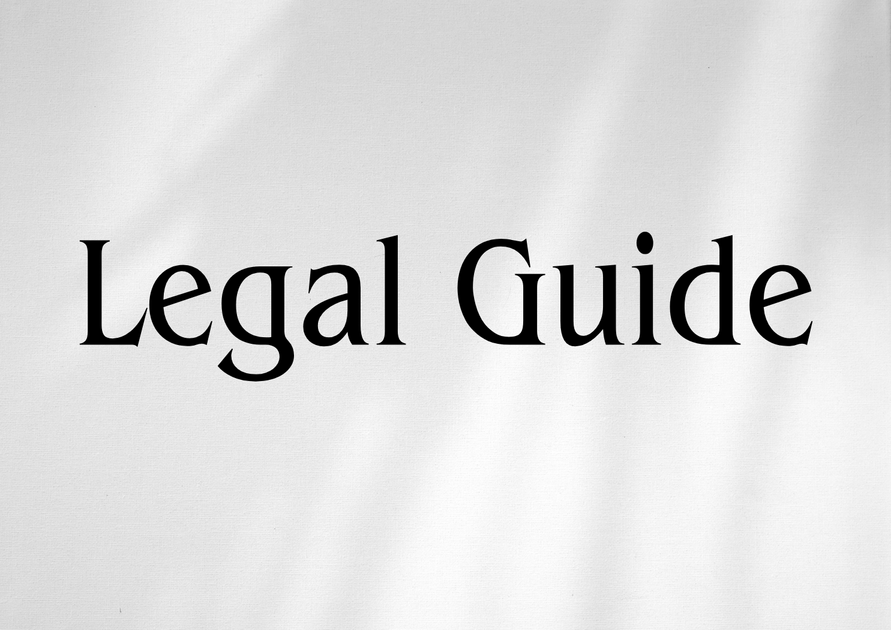Introduction: The Critical Importance of Protecting AI Source Code in the UAE
As artificial intelligence (AI) rapidly shapes the business and technological landscape, safeguarding AI source code has become a strategic priority—especially within the United Arab Emirates (UAE), a jurisdiction positioning itself as a regional AI leader. With recent legislative updates, including Federal Decree-Law No. 38 of 2021 on Copyrights and Neighbouring Rights, Executive Regulations for Intellectual Property Laws, and combined efforts by the Ministry of Justice and UAE Cabinet, the legal ecosystem for software and AI assets is evolving. This article delivers an authoritative analysis on how UAE laws specifically safeguard AI source code, addresses practical compliance strategies, and outlines new risks and opportunities post-2025 updates. Whether you are a technology executive, in-house counsel, or an HR leader, understanding the latest legal frameworks is essential to ensure your AI assets remain protected and your organization compliant in a dynamic regulatory environment.
Table of Contents
- UAE Legal Landscape for AI Source Code
- Core Legal Framework Protecting AI Source Code
- Recent Updates and Reforms: What Changed in 2025?
- Classification of AI Source Code Under UAE Law
- Ownership and Authorship of AI Source Code
- Practical Protection Strategies for Businesses
- Compliance Best Practices and Risk Mitigation
- Comparison of Old vs. New Regulations
- Case Studies and Practical Scenarios
- Risks and Penalties for Non-Compliance
- Future Trends and Concluding Advice
UAE Legal Landscape for AI Source Code
Strategic Context
The UAE recognizes intellectual property—and specifically, software source code—as a cornerstone of innovation and an essential component of its vision to become a global AI hub. Official guiding strategies such as the UAE National Strategy for Artificial Intelligence 2031 and the introduction of AI-friendly legal reforms demonstrate the nation’s dedication to fostering a safe and competitive digital environment. These priorities are further anchored by regular updates from the UAE Ministry of Justice and other government bodies, ensuring the alignment of local law with global best practices.
Core Legal Framework Protecting AI Source Code
Primary Legislation
Federal Decree-Law No. 38 of 2021 on Copyrights and Neighbouring Rights is the fundamental law governing the protection of software and AI source code in the UAE. In addition, UAE Patent Law (Federal Law No. 11 of 2021) and Federal Decree-Law No. 45 of 2021 on Personal Data Protection may intersect with AI system rights and confidentiality.
Key Provisions and Official Sources
- Article 2, Federal Decree-Law No. 38 of 2021: Explicitly recognizes computer programs and source code as protected works, regardless of the medium—applying to traditional software and AI code alike.
- Cabinet Resolution No. 37 of 2022: Provides further executive regulations for managing and enforcing IP rights, including AI systems.
- Article 15, Copyrights Law: Details ownership and commercial exploitation rights.
- UAE Ministry of Human Resources and Emiratisation: Issues guidelines on AI and technology in the workplace, including issues arising from employee-created code.
Recent Updates and Reforms: What Changed in 2025?
Significance of the 2021–2025 Legal Modernization
Driven by the need to bolster AI, the UAE updated several laws to reflect emerging risks and business realities. Key reforms include:
- Broader Copyright Definition: The scope of copyright has been extended to explicitly include algorithms, AI-generated works, and innovative codebases.
- Faster Enforcement Procedures: Introduction of administrative routes via the Ministry of Economy and Ministry of Justice to address copyright infringement swiftly, with digital-first complaint portals.
- Strengthened Sanctions: Penalties for IP violations and code misuse have increased, including higher fines, possible imprisonment, and business closure risks.
- Notice and Takedown Mechanisms: New processes for rapid removal of infringing online content, crucial for AI and software businesses operating in digital spaces.
Official References
For detailed legal texts and updates, consult the UAE Federal Legal Gazette and government portals such as u.ae.
Classification of AI Source Code Under UAE Law
Software, Algorithms, and Copyrightable Works
AI source code is classified as a “protected work” under Article 2 of the 2021 Copyright Law, which covers “computer programs and their applications, databases, and similar works.” Notably, algorithms and machine-learning models—if recorded and fixed in a readable form—qualify for protection. This classification places AI code within the direct purview of copyright, separate from patent law, which only covers technical inventions and methods that meet strict novelty criteria.
| Legal Category | Type of Protection | Applicable Law |
|---|---|---|
| Source Code (AI/Software) | Copyright | Federal Decree-Law No. 38 of 2021 |
| Algorithms/Techniques | Copyright (if fixed); Patent (if novel/industrial application) | Federal Decree-Law No. 38 of 2021; Federal Law No. 11 of 2021 |
| Data/Training Sets | Database Rights; Trade Secret | Copyright Law; Executive Regulations |
Practical Insights
- AI companies should record code systematically and maintain documentation to support claims of authorship and originality.
- AI models and algorithms may enjoy layered protection: copyright for the code, trade secret for confidential methods, and, if applicable, patent for novel techniques.
Ownership and Authorship of AI Source Code
Default Rules Under UAE Copyright Law
By default, the author of software or code is the individual(s) who create it. However, exceptions apply:
- Employee-Created Code: Article 17 provides that works created in the course of employment typically belong to the employer if developed as part of job duties, unless the employment contract states otherwise.
- Commissioned Works: Where code is developed under a written commission, the commissioner typically holds economic rights, subject to contract.
- Joint Authorship: Teams of developers or collaborative works may result in joint copyright, unless otherwise agreed in writing.
Professional Recommendations
- Employers must ensure employment contracts explicitly address copyright and IP ownership of software and AI code.
- Use IP assignment agreements for contractors and collaborators to secure clear legal title.
- HR and legal teams should periodically review workplace IP policies in line with the Ministry of Human Resources and Emiratisation guidance on technology projects.
Practical Protection Strategies for Businesses
Technical and Legal Measures
- Register Software: While copyright protection is automatic upon creation, voluntary registration with the UAE Ministry of Economy is highly advisable. Registration provides additional evidentiary backing in the event of disputes.
- Apply Strong NDAs and Confidentiality Clauses: Maintain robust non-disclosure agreements with employees, contractors, and third parties that interact with proprietary AI source code.
- Implement Access Controls: Limit access to source code repositories and monitor logs for unauthorized use.
- Maintain Detailed Audit Trails: Document the development process, including version control, developer logs, and proof of originality.
- Conduct Regular Compliance Audits: Schedule periodic reviews of your organization’s IP protection strategies, referencing standards set out by the Ministry of Justice and Cabinet Regulations.
Recommended Placement: Compliance Checklist Table
| Protection Strategy | Responsible Department | Status |
|---|---|---|
| Copyright Registration | Legal/IP | Pending/Completed |
| Contracts and NDAs | Legal/HR | Pending/Completed |
| Internal Source Code Controls | IT/Security | Pending/Completed |
| Compliance Audits | Compliance/Legal | Annually/Semi-Annually |
Tips for Multinational Businesses
- Ensure contracts account for UAE jurisdiction, even in cross-border code development. Where remote teams are involved, UAE law should govern any disputes affecting local IP assets.
- Align code management with both local regulations and international standards (e.g., WIPO guidelines).
Compliance Best Practices and Risk Mitigation
Key Steps for Effective Compliance
- Educate all relevant staff on the fundamentals of UAE AI and software law, especially regarding copyright and data handling.
- Centralize the management of source code with access only to authorized personnel.
- Monitor legislative updates from the Ministry of Justice and adapt internal policies accordingly.
Visual Suggestion: Process Flow Diagram
Recommended placement for a visual diagram outlining the steps from code creation, through IP registration, to compliance audits and enforcement response.
Comparison of Old vs. New Regulations
| Key Aspect | Pre-2021 Framework | 2021–2025 Updates |
|---|---|---|
| Scope of Copyright | Software protected, limited reference to AI code; unclear on algorithms | Explicit inclusion of AI code, algorithms, and digital works |
| Enforcement Mechanisms | Judicial action required for most cases | Administrative complaint portals, digital-first enforcement |
| Penalties | Lower fines, limited business sanctions | Harsher fines, possible imprisonment, business closure risks |
| Registration | Optional, less common | Promoted for evidentiary value in disputes |
Case Studies and Practical Scenarios
Case Study 1: Local AI Startup
A Dubai-based fintech startup develops an AI-powered fraud detection tool. The team registers the source code with the Ministry of Economy and requires all staff to sign robust NDAs. When a former employee attempts to sell a modified version to a competitor, the startup leverages the new digital-first complaint portal and quickly obtains an administrative injunction—demonstrating the effectiveness of updated enforcement mechanisms.
Case Study 2: Multinational with UAE Operations
A global software company relies on a UAE-based division for AI R&D. An unclear IP arrangement with expatriate contractors leads to ownership disputes post-employment. Under Article 17, the client is advised to standardize IP assignment clauses to ensure legal certainty, sidestepping a costly court battle and mitigating reputational risk.
Hypothetical: Algorithm Patentability
An Emirati tech innovator develops a new AI learning algorithm. While the code itself is protected by copyright, the unique learning method qualifies for patent protection under the UAE Patent Law—granting the innovator a broader, layered protection.
Risks and Penalties for Non-Compliance
Potential Consequences Under Federal Decrees and Cabinet Resolutions
- Fines: Infringement can attract penalties up to AED 500,000, depending on the scale and willfulness (Cabinet Resolution No. 37 of 2022).
- Freeze/Closure of Business: Repeat or egregious violations may prompt authorities to suspend operations.
- Imprisonment: Serious offences, including willful misappropriation of AI code, can result in custodial sentences.
Penalty Comparison Table
| Offence | Past Penalties (Pre-2021) | Current Penalties (2025) |
|---|---|---|
| Copyright Infringement | AED 50,000–100,000 fine | AED 200,000–500,000 fine, possible 6-12 months’ jail |
| Unauthorized Disclosure | Administrative warning | Business freeze, civil claims, public notice |
Compliance Strategies
- Ensure all AI projects are fully documented, registered, and access-controlled.
- Prepare response plans for rapid enforcement action if infringement occurs.
Future Trends and Concluding Advice
As the UAE’s AI ecosystem matures and legal benchmarks rise in 2025 and beyond, protecting AI source code has become both more urgent and more practicable than ever. New legislation provides clarity, speed, and stiffer deterrents, while also promoting registration and proactive compliance. Businesses that invest in airtight IP frameworks—combining legal, technical, and organizational measures—will both shield their competitive advantage and signal their commitment to regulatory excellence.
Looking forward, we anticipate further alignment of UAE law with global standards, including increased harmonization with WIPO software treaties and next-generation requirements for AI transparency and explainability.
Best Practices:
- Continuously review and update contracts, NDAs, and audit policies.
- Register critical source code and related works.
- Monitor the legislative landscape and adapt proactively.
- Engage qualified legal advisors to oversee IP health and regulatory compliance within your organization.
For a tailored legal strategy or to audit your AI IP portfolio in light of the 2025 legal updates, contact our consultancy team for expert guidance grounded in the latest UAE law and practice.




